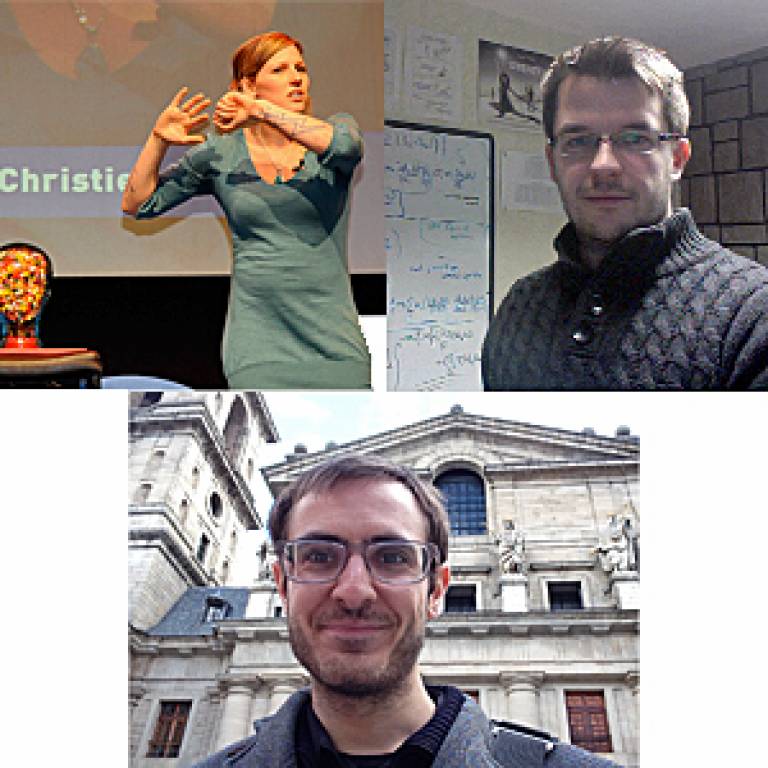UCL researchers set to take their research to parliament
14 March 2014
Sixteen researchers from around UCL have been shortlisted to present their research to a panel of expert judges and over 100 MPs in this year's SET for Britain competition.

Run by the Parliamentary and Scientific Committee, with support from various institutions, SET for Britain aims to encourage, support and promote early career research scientists, engineers, technologists and mathematicians from around the UK whilst fostering dialogue between researchers and MPs.
Split into five categories - engineering, biological and biomedical sciences, chemistry, physics and mathematics, the competition offers prizes up to £3,000 for the posters which best communicate high level science to a lay audience.
The overall winner of the competition will be awarded the Westminster Wharton Medal - established in memory of SET for Britain founder, Dr Eric Wharton.
Andrew Miller MP, Chairman of the Parliamentary and Scientific Committee, said, "This annual competition is an important date in the parliamentary calendar because it gives MPs an opportunity to speak to a wide range of the country's best young researchers.
"These early career engineers, mathematicians and scientists are the architects of our future and SET for Britain is politicians' best opportunity to meet them and understand their work."
This year's UCL entrants and their research poster topics include:
- Christopher Asquith, a PhD student from UCL School of Pharmacy, on using small molecules that target feline immunodeficiency virus (FIV) as a model for HIV.
- Dr Jonathan Burns (UCL Chemistry) on using DNA as a material to engineer nano-sized structures that could potentially be used in anti-cancer therapies and diagnostics.
- Isabel Christie, a PhD student from UCL Medical Physics & Bioengineering, on optogenetics and brain imaging.
- Ajmal Gharib, a continuing research candidate in UCL Electronic and Electrical Engineering, on the 'Prediction of EMI Coupling in Early Stage Ship Design'.
- Simrn Kaur Gill, a PhD student from UCL Civil, Environmental & Geomatic Engineering, on measuring the performance of STEM education in higher education.
- Dr Anai Gonzalez-Cordero (UCL Institute of Ophthalmology) on regenerative medicine and the use of stem cells in creating therapies that may one day restore sight.
- Robert Grand, a final year PhD student at UCL Mullard Space Science Laboratory, on studying the nature and origin of spiral galaxies using high resolution computer simulations.
- Josep Grau-Bové, a PhD candidate from UCL Bartlett School of Graduate Studies, on the simulation of urban pollutants on indoor cultural heritage.
- Dr Paul Hellier (UCL Mechanical Engineering) on the design of advanced biofuels.
- Dr Simon Kuhn (UCL Chemical Engineering) on the scaling-up of microchemical reactors for the sustainable manufacture of chemicals.
- Dr Adam Sykulski (UCL Statistical Science) on building a statistical understanding of ocean data, which contributes towards understanding climate change and the impact of environmental disasters such as oil spills.
- Dimitrious Tsaoulidis, a PhD student from UCL Chemical Engineering on green solvents for more efficient nuclear fuel processing.
- Jane Yates, a PhD student from UCL Chemistry, on identifying cheaper catalysts for hydrogen-powered vehicles.
Links
Image
- Clockwise from top - Isabel Christie, Robert Grand and Josep Grau-Bové
 Close
Close

